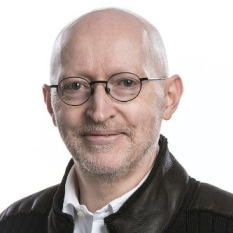Innovation in Kindergarten and Primary School Teacher Education in Physical Sciences
A special issue of Education Sciences (ISSN 2227-7102). This special issue belongs to the section "Teacher Education".
Deadline for manuscript submissions: closed (15 April 2022) | Viewed by 17855
Special Issue Editors
Interests: primary physical science education; conceptual metaphors; narrative in science; embodied cognition; pre-service and in-service teacher education in physics; physics teacher training
Special Issues, Collections and Topics in MDPI journals
Interests: thermodynamics; energy engineering; cognitive sciences; primary physics education
Interests: primary science education; inquiry-based learning; suitable science experiments for children; emotions during hands-on science activities; trainee teacher’s interests and attitudes toward natural science education in kindergarten and primary school
Special Issue Information
Dear Colleagues,
Children demonstrate great interest in natural phenomena, including those usually studied in physical science, and want to learn more about them. How can teachers support and accompany such learning? Which methods and approaches are suitable for building children’s understanding of physical phenomena? Innovative approaches that are used in the tertiary education of kindergarten and elementary school teachers for early physical science education will be illustrated in this Special Issue.
Innovation in the education of student teachers of kindergarten and elementary school levels comes from a reflection on the nature of knowledge, of teaching and learning, and of the discipline itself. The discipline, in our case physics, will need to play the role of a primary science in the following dual sense. Primary means early in the sense of education addressed to children when they build their primary understanding of the world. It also refers to the understanding of concepts and practices of science that may rightly be called primary, i.e., those that form the roots of scientific thought and action. We want to emphasize approaches that help future teachers to become aware of not just the knowledge of a particular science but also of how a child experiences nature and how an understanding of such experience can be fostered and nourished.
In this Special Issue, we wish to address innovative developments that are mindful of this dual sense of primary. This means, in particular, that issues and themes related to the science itself will always be embedded in the lifeworld of a young learner. This places a burden on us as educators of student teachers to be mindful of the connections of physical science with other natural sciences, health science, engineering, social science, and the humanities in order to make physics part of a truly ecological science.
Below is a non-exhaustive list of issues for contributions:
- Physical science as ecological;
- Place- or land-based approaches to science learning;
- Embodied and enactive cognition;
- Experience (of nature) and imagination;
- Narrative and the experience of nature;
- Laboratory work;
- Games, play, and embodied simulations;
- Language and language development;
- Development of cognitive tools;
- Conceptual development;
- Teaching methods and strategies;
- (Narrative) assessment;
- Apprenticeships for student teachers;
- In-service primary teacher training.
Prof. Dr. Federico Corni
Prof. Hans U. Fuchs
Dr. Angelika Pahl
Guest Editors
Manuscript Submission Information
Manuscripts should be submitted online at www.mdpi.com by registering and logging in to this website. Once you are registered, click here to go to the submission form. Manuscripts can be submitted until the deadline. All submissions that pass pre-check are peer-reviewed. Accepted papers will be published continuously in the journal (as soon as accepted) and will be listed together on the special issue website. Research articles, review articles as well as short communications are invited. For planned papers, a title and short abstract (about 100 words) can be sent to the Editorial Office for announcement on this website.
Submitted manuscripts should not have been published previously, nor be under consideration for publication elsewhere (except conference proceedings papers). All manuscripts are thoroughly refereed through a double-blind peer-review process. A guide for authors and other relevant information for submission of manuscripts is available on the Instructions for Authors page. Education Sciences is an international peer-reviewed open access monthly journal published by MDPI.
Please visit the Instructions for Authors page before submitting a manuscript. The Article Processing Charge (APC) for publication in this open access journal is 1800 CHF (Swiss Francs). Submitted papers should be well formatted and use good English. Authors may use MDPI's English editing service prior to publication or during author revisions.
Keywords
- pre-service and in-service teacher education in physics
- primary physical science
- teaching methods and strategies







